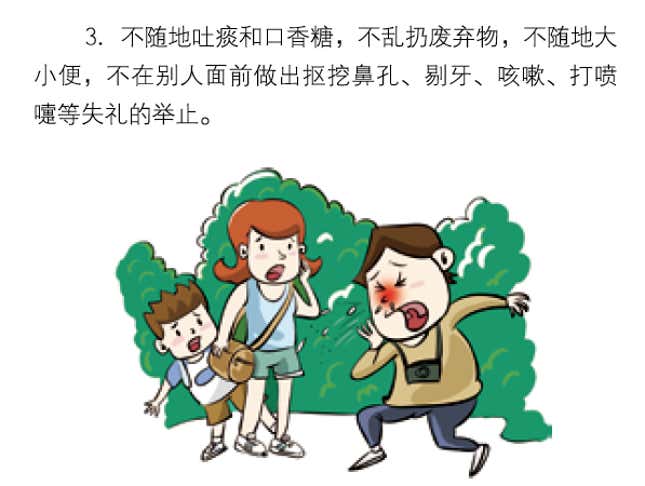Chinese tourists may have finally claimed the title of the planet’s most boorish tourists. And they seem to be trying their hardest to earn it. The list of grievances against Chinese travelers is long, but recent lowlights include throwing candy at North Koreans, carving up a 3,500-year-old Egyptian relief, eating endangered sea creatures and making off with airline cutlery.
The Chinese government, perpetually worried about potential national embarrassments, has taken notice. And in response, the China’s National Tourism Administration just published an information packet a titled, roughly, the Guide to Civilized Tourism and Travel.
It lays out dos and don’ts of traveling abroad (download the pdf here) for the throngs of China’s new traveling public. Some examples of the behavior the CNTA cautions against:
- Lying down in public
- Going out with disheveled hair and a dirty face
- Removing ones’ shoes and socks
The 64-page guidebook also features helpful illustrations like this one. The caption reads: “Don’t spit phlegm or gum, throw litter, urinate or defecate wherever you feel like it. Don’t cough, sneeze or pick your nose or teeth in front of others.”

The scope of tourist activities covered is impressive. The booklet lays out etiquette for the theater (“respect performers… if the performer makes a mistake, you must forgive him and not heckle, whistle or boo him”), scuba diving (“anywhere in the world that you go diving, you shouldn’t grab or take away any marine life”) and hotel pool use (“don’t spit in a hotel pool—and absolutely never urinate in one”).
That last dollop of wisdom is part of a larger thematic preoccupation. Government bureaucrats clearly put a lot of thought into the ways in which Chinese toilet techniques might give offense.
“Don’t take a long time using public toilets” and “don’t leave footprints on the toilet seat,” reads one passage. A section on relieving oneself inflight cautions against “standing on the toilet seat when urinating or defecating.” (Closely related to the warning about footprints, above.) A later passage encourages tourists to hold it while riding in cabs and, before availing themselves of a restaurant’s bathroom, to buy a cup of coffee first. Flushing is emphasized throughout.
The government’s attention to tourist behavior isn’t exactly surprising. Last year, Chinese tourists made 83 million trips overseas, 18% more than in 2012 (paywall). That growth rate implies many of them are going abroad for the first time, likely raising the risk of faux pas.
And for the record, this isn’t the first time the government has resorted to pamphlet paternalism in an effort to avoid embarrassment. Back in 2008, the Beijing government published 4.3 million instructional manuals to prepare residents for the Olympic Games. “No matter what, never wear too many colors” (paywall), said the booklet, which also admonished Beijing residents to “never match black leather shoes with white socks.”




